Online Social Work Courses
Curriculum Details
76 credits required in the major
Southwest Minnesota State University’s online bachelor’s degree in social work includes 25 major courses that combine a liberal arts education with professional social work classes for generalist practice. You will explore essential topics like human behavior, social welfare policy, and at-risk populations.
This CSWE-accredited online program also features a practicum requirement. Every student completes 440 hours of supervised field practice in community agencies to apply their skills in real-world contexts. Online social work students are also required to take one Indigenous Nations and Dakota Studies course to prepare for work with the Dakota and Anishinaabe peoples of the Upper Midwest region.
Most students complete this degree in three to four years, graduating ready to pursue their MSW.
Liberal Education Foundation (MnTC)
Credits
Students may choose any INDS course for a total of 3 credits.
Surveys the executive, legislative, and judicial branches of the national government; the role of political parties, interest groups and public opinion. Includes discussion of local and state government and the political uses of the law.
This course surveys content areas of general interest in psychology. Topics include major schools of thought in psychology, development, states of awareness, learning, memory, health and stress, personality, abnormal behavior, psychotherapy, and social issues.
A survey of basic concepts and research areas in sociology, including sociology origins, major theoretical perspectives, research methods, culture, social structure, socialization, group processes, formal organizations, deviance and social control, stratification, racial/ethnic and gender inequality, social institutions, demography, collective behavior, and social change.
Interdisciplinary Foundation
Credits
This course provides students with an introduction to the use of statistical methods in behavioral sciences research. Topics covered include descriptive statistics, t tests, analysis of variance with post-hoc tests, correlation, linear regression, and chi-square tests. Students taking this course should also enroll in the laboratory section, in which they will learn how to use statistical software for data analysis.
The required preparation is MATH 110 or three years of high school mathematics.
This course provides students with instruction on the use of statistical software to perform analysis of behavioral research data. Students will learn how to run and interpret outputs for a wide variety of common statistical procedures, including descriptive statistics, t tests, analysis of variance, correlation, and chi-square tests.
The required preparation is completion or current enrollment in PSYC 200, or familiarity with basic statistical procedures.
Causes and treatment of abnormal behavior patterns, diagnosis of such behaviors and investigation of normal and abnormal behaviors are studied.
Developmental psychology is the study of the development of behavior across the entire life span from birth until old age.
This introduction to social research applies social research methods to sociology, criminal justice, and social work. Includes analysis of published research along with quantitative and qualitative research methods in investigating social issues, program evaluation, practice evaluation, policy analysis, and needs assessment.
Professional Social Work Foundation
Credits
An examination of models of generalist practice in working with individuals, families, and small groups from systems, life model, and Person-In-Environment perspectives. Reviews basic interviewing and interpersonal skills. Places emphasis on assessment of strengths and problems at various system levels, contracting, and intervention strategies. Practice evaluation, utilizing single-system designs, is examined.
The course will focus on family roles, family dynamics, group dynamics, group structure and process, group types, functions, roles, stages of development, styles of leadership, skills of conducting groups, techniques, problem resolution and the reality and effects of group termination. The course shall emphasize the diversity of human behavior and experience, and recognize the uniqueness of each individual client.
An examination of models of generalist practice in working with task groups, organizations, and communities. Emphasis will be placed on the role of generalist social work practice with the community, including skills for organizational relationship building, for planning and development of programs, methods of promoting social change, managing political processes, and practice and program evaluation.
Examines quality-of-life dimensions and outcomes of diverse and at-risk populations important to human service professionals, including age, class, color, disability, ethnicity, family structure, gender, marital status, national origin, race, religion, sex and sexual orientation; dimensions examined include education, employment, health, housing, justice administration, and welfare.
Field Practicum
Credits
Capstone, integrative seminar on topics related to social work practice, with attention to issues and problems experienced in field instruction.
Concurrent enrollment in SWRK 499 required.
At least 400 hours supervised field practice in community agencies and programs as a practical application of social work knowledge and skills gained from major coursework. Emphasis on direct work with clients, whether individuals, groups, or communities; taken concurrently with SWRK 485 where students use their experiences to analyze social work theory and practice.
Concurrent enrollment in SWRK 485, SWRK 415.
INDS Courses
Credits
This course studies the history and culture of the Indigenous peoples of Minnesota. Origin and migration stories will be examined. Their interactions with each other, Europeans, and other native groups will be focused on, as well as contemporary issues facing the indigenous peoples of the Upper Midwest.
Designed to provide lower-division students with an opportunity to experience a special or experimental curriculum enrichment course.
This course will introduce spiritual beliefs, values, and world views of indigenous peoples in the United States. The course will specifically examine Dakota and Anishinaabe peoples of our region. Students will critically examine the topics of creation and origin, migration stories, the cycle and circle, time and space, the group and the individual, death and dying, value systems, and the American Indian Religious Freedom Act. Students will have the opportunity to examine their own spirituality, values, and beliefs.
Arranged Independent Study in Indigenous Nations and Dakota Studies.
Request More Information
Complete this form to receive information about coursework, admissions, tuition, and more.
